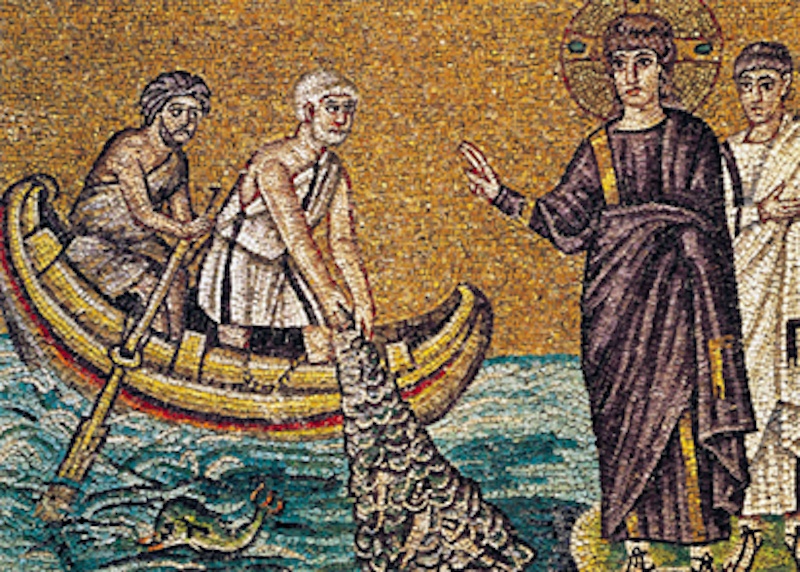Today is the Feast of the Confession of Saint Peter the Apostle. It is a striking commemoration, drawing upon the Gospel of Matthew (16:13-19):
Now when Jesus came into the district of Caesarea Philippi, he asked his disciples, ‘Who do people say that the Son of Man is?’ And they said, ‘Some say John the Baptist, but others Elijah, and still others Jeremiah or one of the prophets.’ He said to them, ‘But who do you say that I am?’ Simon Peter answered, ‘You are the Messiah, the Son of the living God.’
Peter’s ‘Confession,’ and it did not matter whom others thought Jesus was. Who do YOU, Peter, say that I am?
A ‘confession’ is another word for a creed or a belief. We in the Episcopal Church might thus be called the people of the Anglican Confession. More typical usage, the term ‘confession’ is thought of as an acknowledgment of guilt.
‘Confession,’ as used in Matthew’s Gospel, is a joyous exclamatory statement, that Jesus is the Christ, the Messiah, the Son of the Living God. It explosive, a revelation of the fulfillment of Israel’s longings for a Savior.
Jesus embraces that joy, because Peter, whose name means ‘Rock,’ has expressed the foundational belief on which the new Church would come into being. The passage continues (17-18):
And Jesus answered him, ‘Blessed are you, Simon son of Jonah! For flesh and blood has not revealed this to you, but my Father in heaven. And I tell you, you are Peter, and on this rock I will build my church….
There have been disagreements throughout the history of the church as to whether these verses create a papacy with absolute authority over all Christians. Let’s put that aside and consider instead the essence of Peter’s words and his humility, both here and in other Scriptural passages.
Peter is quintessentially human, full of contradictions, hot-headed, humble, pious, willful, swearing to stand by his Lord, and in the end, denying his connection to Jesus. Fear overcomes him when accused of being a follower of Jesus; and it is not until the descent of the Holy Spirit, at Pentecost, when Peter and all the disciples are emboldened.
In fear they hide in the Upper Room. Then, in defiant bravery and astonished love, they emerge from the sweeping wind and flames that encircle them, and show how, indeed, ‘Love casteth out fear.’(1John 4:18) Peter and the others express new courage based in the love that lifts their minds and souls.
Peter’s Confession that is celebrated today has deep roots in his character in a way that allows us to see our own internal contradictions. Like Peter, the disparate parts of our character are incongruent. We are inconsistent and face internal conflicts. Like Peter.
The conflicts in Peter’s character make his heroism even more astounding. Consider Luke’s Gospel, and the time Jesus told the fishermen, tired from toiling all night long, to let down their nets again. (Lk. 5:8) They protested, then did as Jesus instructed, and caught so many fish that their nets were breaking, that they had to call for help. When Peter realized the miracle of it all, he worshipped:
When Simon Peter saw it, he fell down at Jesus’ knees, saying, “Depart from me, for I am a sinful man, O Lord!”
What humility in this naked man! (The men fished without clothes on because the waves would drench them, preventing them from doing their work. Doesn’t this detail capture the heart?)
Peter confessed Jesus’ divinity elsewhere. For example, when Jesus began his final journey to the Cross, John 6:22-59, Peter in an even deeper, more fraught and sad and steadfast avowal of Jesus’ promise:
They were in the synagogue in Capernaum, and Jesus has told the many who were listening to him, that he, Jesus, was the Bread of Life (v.51):
I am the living bread that came down from heaven. Whoever eats this bread will live forever. This bread is my flesh, which I will give for the life of the world.
The statement is hard, and Jesus asked the Twelve if they also want to leave.
Peter’s response reverberates through eternity:
Simon Peter answered him, “Lord, to whom shall we go? You have the words of eternal life.’
Peter’s stunning statement is the gospels’ most powerful assertion of Jesus as that one place in which we, today, find the eternal truths, the reality of God. To whom else should we go? To no one else. There is no other possibility.
The confession of God among us. We can only pray that Peter’s words are our words as well, all the days of our lives.
.

